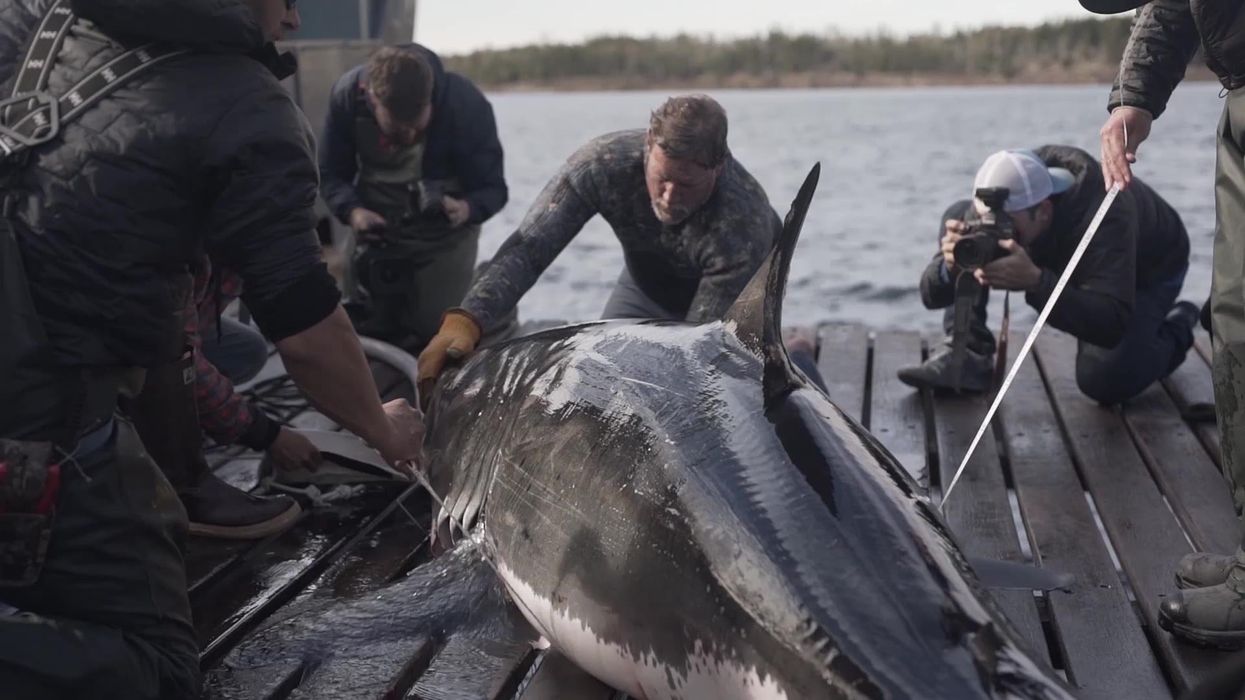Scientists have revealed that the great white may have killed off the world's biggest shark.
The Megalodon, which fittingly means 'large tooth', lived between 3.6 million and 23 million years ago. Their teeth were as big as a human hand, with jaws described as the "ultimate cutting tools."
Researchers said fossilised teeth show Megalodons went after the same food as the great white, such as whales, dolphins and porpoises. The shark species was three-and-a-half times bigger than the great white shark at an impressive 65ft in length.
"These results likely imply at least some overlap in prey hunted by both shark species," co-author Professor Kenshu Shimada of DePaul University, Chicago, said, according to The Mirror.
An international team collated a database of values for 20 living and prehistoric shark species ranging from aquarium and wild individuals to Megalodon.
"Our results show both Megalodon and its ancestor were indeed apex predators - feeding high up their respective food chains," co-author Prof Michael Griffiths of William Paterson University, New Jersey, said.
"But what was truly remarkable is zinc isotope values from Early Pliocene shark teeth from North Carolina suggest largely overlapping trophic levels of early great white sharks with the much larger Megalodon."
Sign up to our free Indy100 weekly newsletter
The study in Nature Communications compared zinc levels in several extinct shark species from Megalodon's era with modern counterparts.
The analysis of zinc levels shows they were at the top of the food chain, so nothing ate them.
Some have argued that the shark species could still be alive – an idea that Prof Shimada opposes.
He said: "While additional research is needed, our results appear to support the possibility for dietary competition of Megalodon with Early Pliocene great white sharks."
Have your say in our news democracy. Click the upvote icon at the top of the page to help raise this article through the indy100 rankings.














